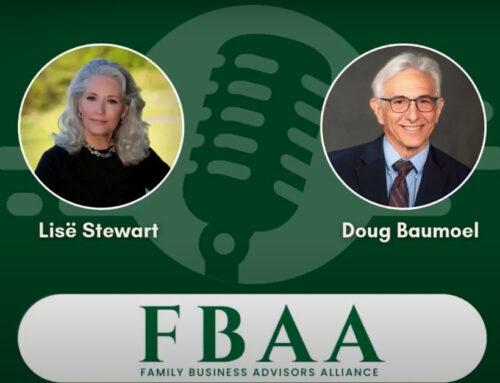Structure Builds Strength in Enterprising Families
How Family Governance Supports Family Harmony
Estimated read time: 4 mins
Sometimes, “harmony” can be a loaded word for families in business, full of challenges related to its definition and its overall achievability. It’s often confused with avoiding conflict or staying superficially pleasant, but true family harmony isn’t about uniformity or silence. Contrarily, it’s about resilience, relational trust, and a shared willingness to stay in connection, even through disagreement.
At Continuity, we see harmony not as the absence of conflict, but as the capacity to address differences in a way that strengthens relationships. This capacity grows when families have both emotional connection and structural clarity, what we call the Family Factor.
When families have a desire to remain connected across generations, good family governance becomes more than a business tool. It becomes a relational anchor.
Governance as a Clarity Creator
Family governance (when thoughtfully designed) creates clarity around roles, decision-making, and communication. But most importantly, it signals to the entire family that the legacy is a shared endeavor, not just a financial asset or a founder’s vision.
Well-structured governance frameworks help clarify who does what, how decisions are made, and where differing perspectives can be heard. This clarity reduces the ambient anxiety that so often fuels conflict in family systems. When expectations are unclear, people fill in the blanks with fear, assumptions, or resentment. When roles are murky, power struggles emerge. Governance helps prevent that by creating agreed-upon pathways for how the family relates and operates together.
Harmony as a Conflict Mitigator
Harmony comes from meaning-making, not unquestioned agreement. Families who take time to reflect on their shared history, name the values they want to carry forward, and align around common goals are better equipped to move through hard conversations without rupturing.
Importantly, harmony is sustained not because disputes or conflict disappear, but because the family has built the muscle to reconnect after it. That’s where the desire to remain in relationship—across differences, life stages, and lived experience—becomes essential. It is a choice, not a given.
Where Governance and Harmony Meet
Many families begin the governance process with documents: a constitution, policies, a charter. But documents without meaning or application rarely hold. Family meetings and retreats, when designed with intention, offer more than updates and logistics. They create space for rising generations to be seen, for legacy to be shared aloud, and for decisions to be co-created rather than imposed. These moments allow governance to become a living expression of the family’s values, not just a set of rules.
When families engage relationally in the governance process, there’s more buy-in, more continuity, and more emotional resilience when challenges arise.
Clarity Eases Anxiety━and Conflict
At its core, governance is about clarity. And clarity eases the uncertainty that often drives conflict in enterprising families. Instinctively, as humans, we’re wired to crave structure and stability, especially in relationships. We value clear expectations and directives we can follow (or choose not to follow). When there is a lack of clarity, anxiety rises. That anxiety can show up as irritability, isolation, rebellion, and other behaviors that are not conducive to connection and harmony in family systems. In systems where ambiguity reigns, anxiety follows. And anxious systems tend to produce reactive behavior, ruptured trust, and ongoing power struggles. Governance offers a counterweight: structure that allows space for both stability and change.
When there’s a plan for succession, the rising generation can prepare with purpose instead of guessing. When there’s a process for decision-making, family members can disagree without destabilizing the whole. When roles are clear, people can step into leadership without stepping on each other.
Family harmony lives at the intersection of relationship, structure, and shared intention. Good family governance doesn’t guarantee harmony, but it creates the conditions where it can grow and foster the Family Factor— the strength of the family bond to leverage compromise, forgiveness, and a commitment to change.
Families who invest in both the emotional and structural dimensions of legacy are better positioned to thrive across generations—not just as stewards of wealth, but as stewards of one another. Governance is not simply about rules or documents; it is about creating the structures that make healthy connection possible. The earlier families start this work, the stronger their foundation will be when challenges inevitably arise.
Stay in the Know
Get our latest articles, tips, and insights delivered straight to your inbox.
Share this Insight, choose your platform!
About Us
Continuity Family Business Consulting is a leading advisory firm for enterprising families. Using a full suite of service capabilities, we help families prevent and manage the single greatest threat to family and business continuity: conflict. It is through this lens that we advise our clients and build customized strategies for succession planning, corporate governance, family governance, and more. We help families improve decision making, maximize potential and achieve continuity. To inquire, contact us.












